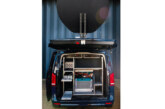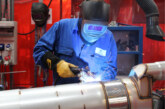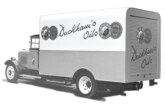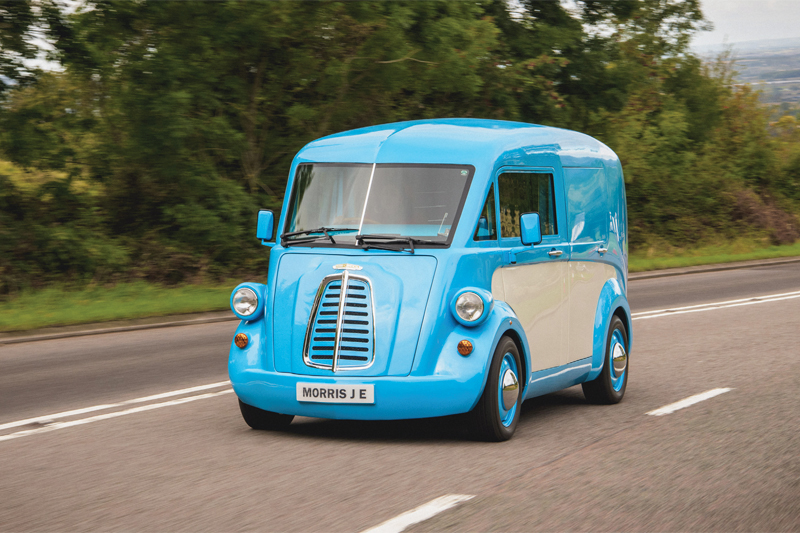
When you think of an electric vehicle, what comes to mind? Your mind might conjure images of bright LED lights and the latest technology, hidden cleverly within a sleek, modern shell. What you probably don’t think of is the Morris JE: a reimagining of the retro J Type van.
With a unique modular chassis and a one tonne payload, Dr Qu Li, CEO and Founder of Morris Commercial, claims that the JE is the first focused effort to create a functional, fully electric light commercial vehicle without compromising style. “Design is not often the main factor when it comes to LCVs,” she explains. “We are breaking the mould.”
Not limited to just being an electric vehicle, Mike Schooling, CTO and Founder of Indra Renewable Technologies, highlights that the JE is also “grid ready”, meaning that users will be able to discharge the battery as well as charge it, selling energy back to the grid in the process. Mike claims that on a domestic scale, you can save up to £80 per month, a potentially alluring incentive for a fleet owner concerned about rising fuel prices.
Dr Li also describes the van as “one to build your business in”, commenting that much of the current buyer interest comes from small businesses, as well as the events and hospitality industries.
Breaking the mould
Dr Li claims that the automotive industry is facing a revolution that will force VMs to offer “long term sustainable solutions”. Historically, vehicle manufacturers (VMs) have opted to combat combustion at the commercial source, honing their focus in on the passenger car rather than at a wider vehicle parc that includes commercial vehicles. Such a heavy focus on the former to reduce emissions is arguably misguided, given that LCVs alone account for 2.5% of total EU CO2 emissions. According to the European Commission, provisional data shows that average emissions have decreased by 14.2% since 2010 – it may be time to extend the focus to a wider vehicle parc.
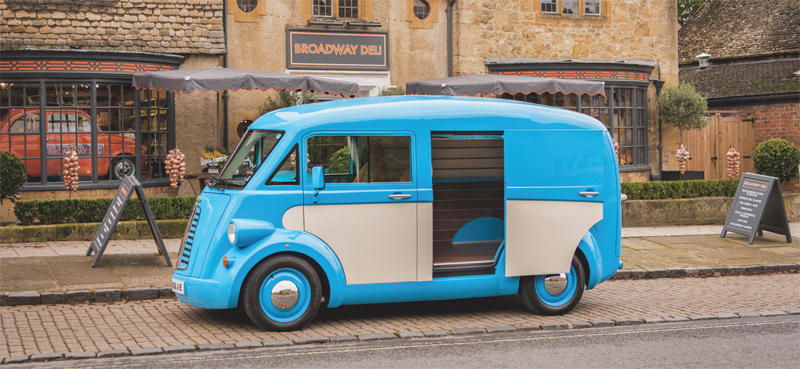
Despite passenger cars being responsible for around 12% of total EU CO2 emissions, LCVs individually have much higher emissions than cars – it therefore seems that a focus on commercial vehicles might be the way forward in the ‘electric revolution’. If the LCV corner of the sector is cracked, this could eventually extend to the more heavy duty trucks of the sector, especially as, according to the Ministry of Transport, heavy goods vehicles alone account for 16% of greenhouse gas emissions in the UK.
Lower road freight emissions may also inspire heavier use of the electric method in other sectors – air freight is a notoriously large contributor to greenhouse gas emissions, and the normalisation of electric heavy duty transportation might be the next step in encouraging large corporations to adopt a more sustainable solution for the future.
Dr Li also appears to see the potential for expansion here, explaining that the JE’s chassis is of a modular design which can be altered and applied to larger LCVs and, eventually, HCVs. The chassis allows for a maximum storage space of two euro palettes, and with a range of 200 miles and 12 second brake testing from 0 to 60mph, it’s clear that the JE doesn’t compromise practicality for style.
A paradigm shift
There are currently two million electric vehicles on the road, and this number is expected to increase tenfold by 2030. At £60,000, the JE may not be the most cost-efficient option for the budding business, but Dr Li claims that by 2030 there will be a “large shift” in terms of price that will incentivise the use of electric technology.
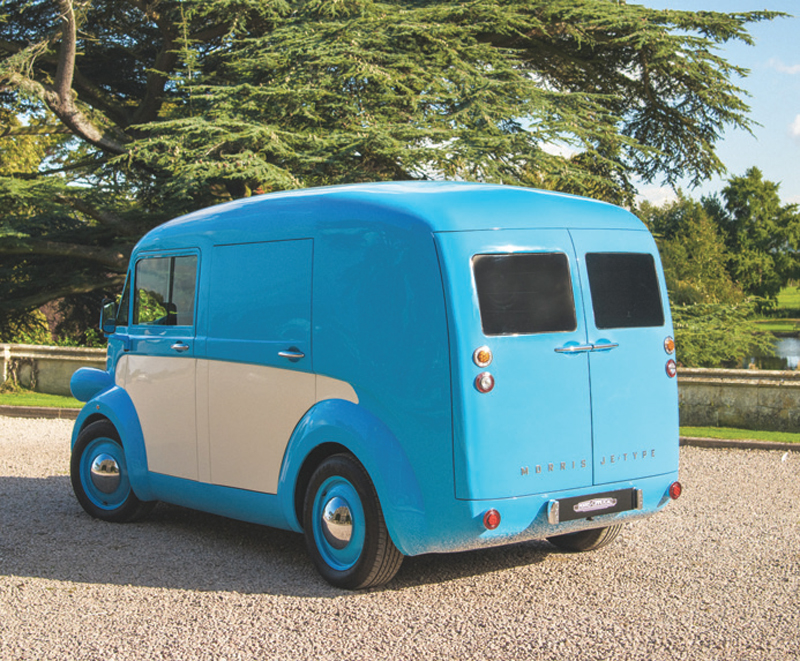
At present, electric vehicles are often significantly more expensive than those using combustion engines, and fleet owners are unlikely to make this investment without a price incentive. When the price of the electric battery drops and the technology becomes more common, however, this will change. Traditional vehicles will no longer have the market advantage of being more convenient with the introduction of a larger infrastructure to support EVs, and cheaper service and fuel costs will make the electric commercial vehicle the obvious choice for businesses to use. Furthermore, congestion zones and emissions legislations will continue to get tougher, and an electric solution will allow businesses of all sizes to comply with these inevitable restrictions.
Morris claims that they are ahead of the curve in this sense, and the company hopes to sow the seed further. Only time will tell how quickly the ‘electric revolution’ will be adopted by the commercial sector, but it’s clear that the company is lighting the way.


